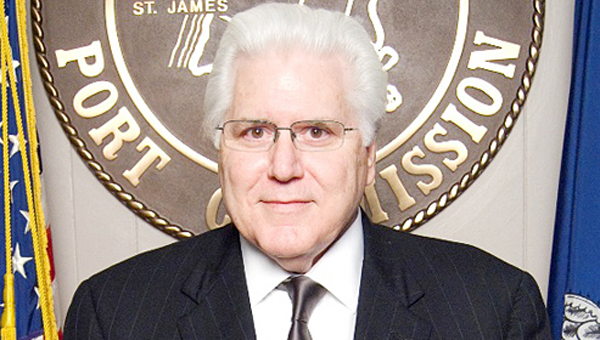Aucoin: USMCA Trade Agreement a huge success for Louisiana agriculture
Published 12:00 am Saturday, January 4, 2020

- Paul Aucoin is the executive director of the Port of South Louisiana.
In early December, the United States, Mexico and Canada reached an important agreement regarding trade relations for all three countries. President Donald Trump, Canadian Prime Minister Justin Trudeau and Mexican President Andres Manuel Lopez Obrador have renegotiated the North American Free Trade Agreement, or NAFTA, into the new United States-Mexico-Canada Agreement, or USMCA. The pact was signed in Mexico by representatives from all three countries and is supported by Congress with Canada and Mexico planning to introduce it to their respective legislatures for approval soon.
In 1994, the North American Free Trade Agreement was signed among the three countries. This original agreement eliminated trade barriers among the U.S., Mexico and Canada and at the time was the world’s largest free trade agreement. NAFTA also marked the first time two developed nations, Canada and the United States, signed a trade agreement with an emerging market country, Mexico. In addition to the removal of many tariffs between the three countries, the original NAFTA agreement addressed auto manufacturing, job opportunity increases, and oil import prices from Canada and Mexico, to name a few of the issues in the 2,000 page document.
In 2017, President Trump announced renegotiations of NAFTA would begin, which Canada and Mexico agreed to. During his election campaign, President Trump noted the necessity for updating the agreement due to technological advances and economical changes since the initial agreement was signed. In 2018, discussions on restructuring NAFTA began.
Trending
USMCA differs from NAFTA in many ways. Under USMCA, for example, 75 percent of automobile mechanisms must be made in either the United States, Canada and/or Mexico to avoid tariffs, an increase from the NAFTA policy stating 62.5 percent of the manufacturing had to occur in the three countries. Another change, and one highly important for the United States, is the adjustment to the previous NAFTA policy regarding the dairy market. Previously, there had been Canadian protective tariffs as high as 300 percent on many dairy products. With USMCA in place, more American dairy goods will be able to enter Canada duty-free. Reciprocal treatment for Canadian dairy exports to the United States will also be introduced as part of the trade agreement. Export amounts for each product will increase one percent for an additional 13 years. It cannot be understated what a huge success these new policies will be for American dairy farmers.
Mexico is one of the Port of South Louisiana’s top trading partners by way of exporting grain along with buying more rice and corn from Louisiana than any other country. Canada is the fourth largest importer of rice from the United States in the world. Also, with more favorable trade agreements come more job opportunities, trade and cargo for the state of Louisiana. It is estimated that USMCA will add $68 billion dollars and 176,000 jobs to the U.S. economy. As the largest tonnage port in the Western Hemisphere, the Port of South Louisiana welcomes all possibilities that will increase international exports. To date, 17 industries have committed to locate within the Port’s region, resulting in $23.5 billion dollars’ worth of new investments. Half of those companies come from foreign countries. The passage of USMCA can only lead to more business for the Port of South Louisiana as the new policies are extremely attractive, not only to Canada and Mexico, but to additional countries wanting to make an investment in our district.
Paul Aucoin is executive director of the Port of South Louisiana. For more information, call 985-652-9278.






